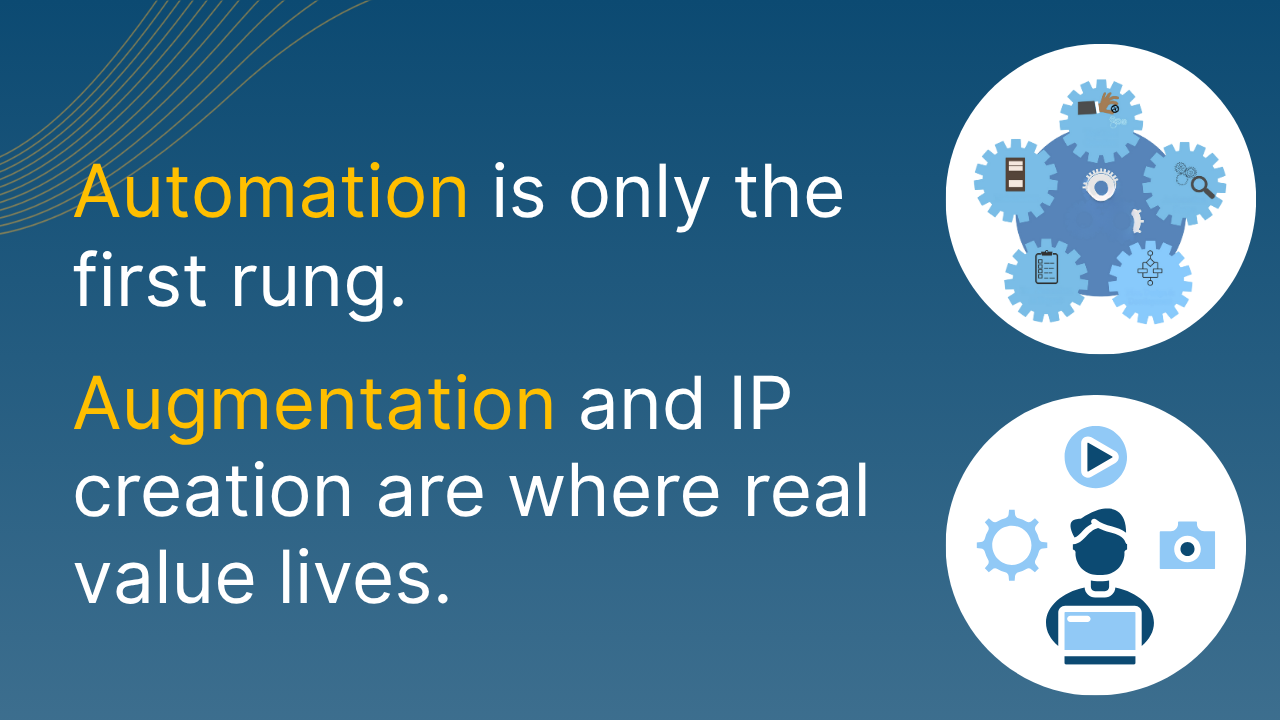
I have seen India’s GCCs are shifting from low-cost execution hubs to AI-powered IP engines, blending automation, talent innovation, and compliance discipline to own products, not just projects.
From Cost Centres to IP Engines with AI Toolchains
Over the last decade, I have watched India’s Global Capability Centres (GCCs) outgrow their “cost arbitrage” tag. The next decade will belong to GCCs that become innovation and product powerhouses, using AI toolchains not just to optimise, but to create.
For me, this shift is not about adding more engineers. It is about re-architecting the roadmap, talent model, and governance for an era where IP creation is the core value proposition.
Here’s the practical playbook I have seen leaders test and scale.
1. Roadmap: Automation → Augmentation → Product Ownership
- Stage 1 – Automation: We should target the “process debt” first. Use AI-driven RPA (Robotic Process Automation) and intelligent workflows to eliminate repetitive tasks and create baseline efficiency.
Impact: We can free 15–20% of team bandwidth within months.
- Stage 2 – Augmentation: We can integrate AI copilots into engineering, design, testing, and support. And focus on decision acceleration, shortening time from idea to deployable prototype.
Impact: It will improve iteration speed, boosts developer satisfaction.
- Stage 3 – Product Ownership: We can move from “building to specs” to “owning product roadmaps.” Also, enable domain-specific AI models that can power proprietary features and sustain long-term IP value.
Impact: Positions the GCC as an innovation node, not a back-office.
2. Talent Model: Domain Pods & Rotation Cadences
- Domain Pods: Create small, autonomous units of cross-functional talent – engineers, designers, product managers, and data scientists – focused on a single problem space.
Why: Deep domain immersion leads to faster breakthroughs and fewer handoff losses.
- Rotation Cadences: Every 9–12 months, rotate high-potential talent across pods and functions.
Why: Prevents knowledge silos, builds multi-domain thinking, and keeps creative problem-solving alive.
- AI Toolchain Literacy: Train every role, not just developers, on the AI tools relevant to their function. A marketing analyst who knows prompt engineering can be 3x more effective.
Why: Broad AI fluency turns the GCC into a multiplier network. When every role can self-serve insights, automate tasks, and prototype ideas, innovation stops being the tech team’s bottleneck – it becomes everyone’s job.
3. Metrics: Innovation Velocity & Pull-Request Quality
- Innovation Velocity: We should measure validated new features shipped per quarter, not just tickets closed. Reward impact, not activity.
- Pull-Request Quality: We should track AI-assisted code merge success rates, defect escape ratios, and review turnaround times.
- Product Adoption Signals: We should monitor internal and external usage patterns to ensure innovation is creating measurable business lift, not shelf ware.
4. IP Protection & Compliance Essentials
- Data Guardrails in AI Toolchains: We can implement local LLM sandboxes to prevent sensitive code or data from leaking into public AI models.
- Compliance by Design: We can embed privacy, export control, and sectoral compliance requirements into CI/CD pipelines. This will reduce compliance firefighting at release time.
- Patent Pipelines: We should have a lightweight internal process for identifying, documenting, and filing IP as part of normal sprints, especially for AI-driven solutions.
- Global Standards: We need to align with GDPR, SOC 2, ISO 27001, and sector-specific standards early. GCC credibility as a global IP hub depends on trust.
Why This Matters
The GCC 3.0 shift is more than operational excellence. It is strategic sovereignty.
When India’s GCCs own products and IP, we:
- Move up the global value chain.
- Create talent ecosystems that rival global R&D hubs.
- Attract premium mandates and strategic partnerships.
Conclusion
AI is the catalyst, but leadership intent is the multiplier. A GCC can buy the best AI tools tomorrow. But without the roadmap discipline, talent orchestration, and governance muscle we build here, those tools will remain expensive toys.
GCC 3.0 is not a future scenario for me. It is an urgent build we are already in the middle of.
#GCCTransformation #AIInnovation #IPCreation #DigitalLeadership #FutureOfWork #TechStrategy #GCCIndia #ProductLeadership


